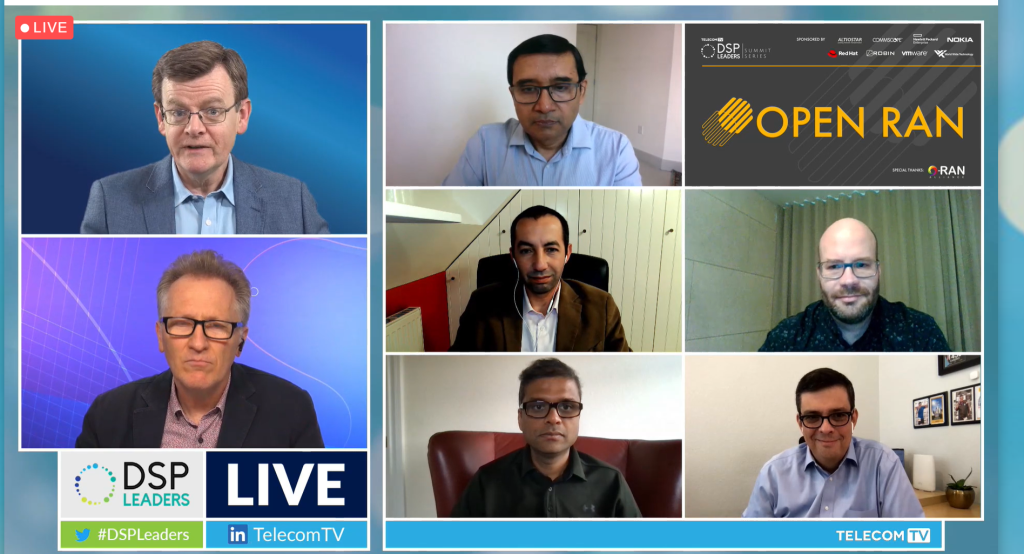“Open RAN” is rapidly overtaking “5G” as telecom’s Great Disruptor. At least in conversation. But unlike “5G”, it doesn’t require the same act of faith – the one that insists that simply connecting more things is unequivocally good business.
Day 1 of Telecom TV’s timely Open RAN Summit queued up some of the key players and topics that will define the discussion for the next couple of years.
There must be many candidates for the title “Godfather of Open RAN”, but one must surely be Alex Choi. Senior VP, Head of Strategy & Technology Innovation at Deutsche Telekom. Alex was formerly CTO at SK Telecom, one of the industry’s most progressive operators in one of the most progressive teleconomies in the world. Alex was also the first Chair for the Telecom Infrastructure Project.
Alex was unequivocal about DT’s strategy on Open RAN: “It’s at the core of DT’s future RAN strategies”. That’s pretty clear then. DT has labs for open RAN interoperability testing, and is fully aware of the need for operators to play an active role in fostering and supporting new entrants into an open RAN supply chain. This active engagement (I don’t think I heard the phrase “proof of concept” mentioned at all today) is one of the distinguishing characteristics of the open RAN movement.
AT&T’s Andre Fuetsch, CTO for AT& and President of AT&T Labs was also not messing about. AT&T has long pioneered the cause of “open” and disaggregation, and sees RAN as just the latest in a sequence of falling dominoes.
Discussions about open RAN seems to come with a genuine excitement about its potential. Not in a 5G “trillions of dollars in global GDP” way, but in a more prosaic “this just makes complete sense” way. Where “complete sense” means removing constraints on innovation; making it easier for a wider range of vendors to work with telcos; and ultimately making it quicker, easier and cheaper for end customers of all sorts to do their jobs.

The panel session with Orange, VMWare, Altiostar, Nokia, Deutsche Telekom did nothing to spoil the party mood. Despite some uncertainty and unknowns about investment, systems integration, rural v urban, operator readiness, vendor maturity – and that’s before we get onto day 2’s questions on economics.
Nonetheless, on this showing: the future’s bright, the future’s O-RAN.
Further reading/viewing: